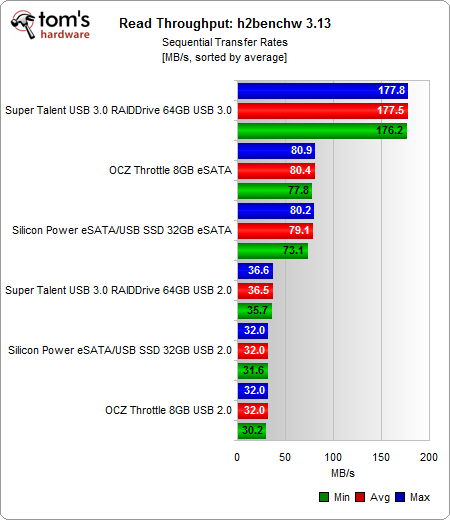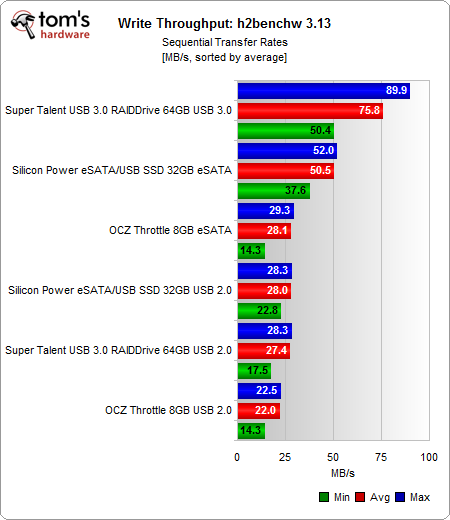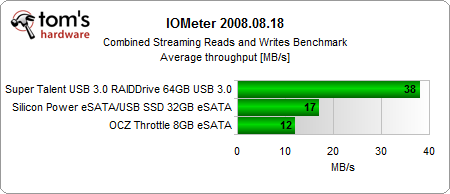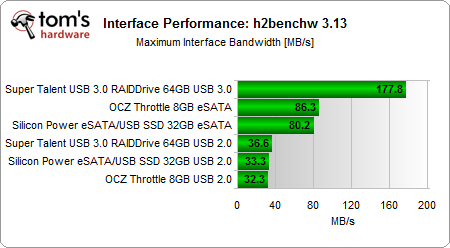USB 3.0 On A Stick: Super Talent's RAIDDrive 64 GB
Wondering how fast USB 3.0 runs compared to USB 2.0 and eSATA? We take three flash-based thumb drives and run them through our storage benchmarks. We don't expect to see the interface's 500 MB/s maximum any time soon, but the results might surprise you.
Benchmark Results: Throughput
The bad news is that Super Talent’s driver did not work on our storage reference test system. The good news is that the drive is extremely fast, with a minimum sequential throughput very close to the 177.8 MB/s maximum. This tells us that the drive delivers constant performance. The eSATA drives are much slower at around 80 MB/s, and the USB 2.0 options aren’t too impressive. Still, the Super Talent RAIDDrive reaches extremely high scores at more than 36 MB/s using USB 2.0.
This is a new workload to look at. What happens if you read and write from and to a drive at the same time. 1 MB and 512 KB blocks are read and written sequentially (66% read / 33% writes) at a 50% read/write distribution.
Combined read and write operation results in a combined bandwidth of 38 MB/s on the RAIDDrive using USB 3.0 and less than half that on the other drives via eSATA. USB 2.0 returns even lower performance numbers on all drives.
Write throughput is typically the way to crush a thumb drive’s performance, and this holds true with the RAIDDrive. All that’s left of the nearly 90 MB/s maximum is 50.4 MB/s minimum throughput. However, this is as much as the other drives reach in best case scenarios, and most eSATA or USB 2.0 solutions are limited at less than 30 MB/s.
If we compare the minimum throughput, then you realize that the USB 3.0 RAIDDrive delivers at least 2.5x more write throughput than USB 2.0 or eSATA drives. This is probably most important if you frequently need the drive to store large amounts of data.
Get Tom's Hardware's best news and in-depth reviews, straight to your inbox.
Current page: Benchmark Results: Throughput
Prev Page Benchmark Results: Access Time And I/O Performance Next Page Conclusion


